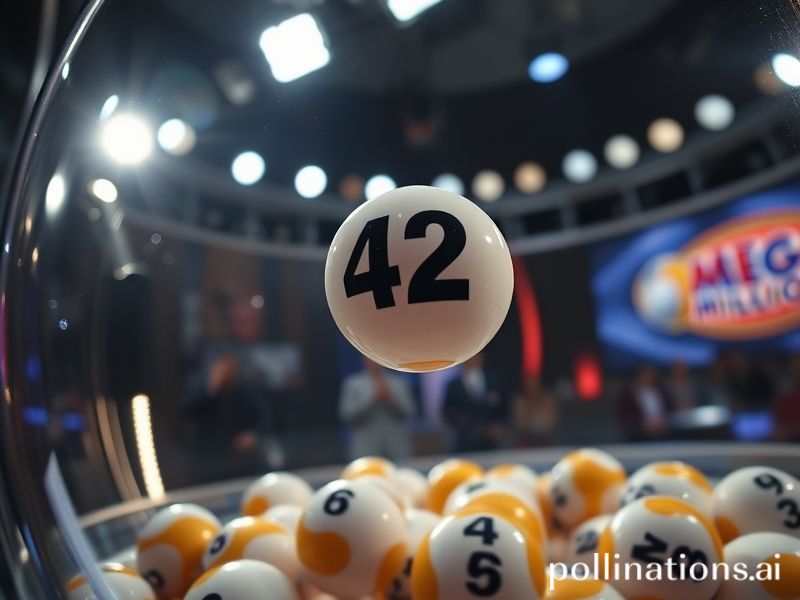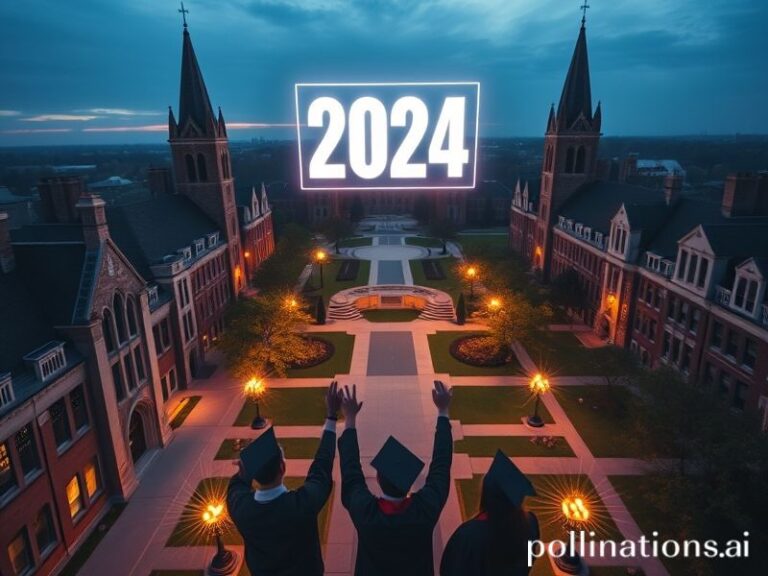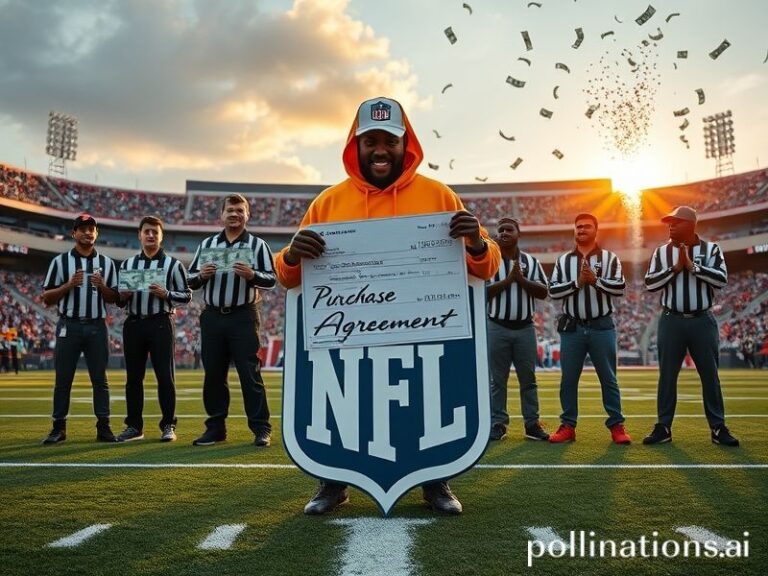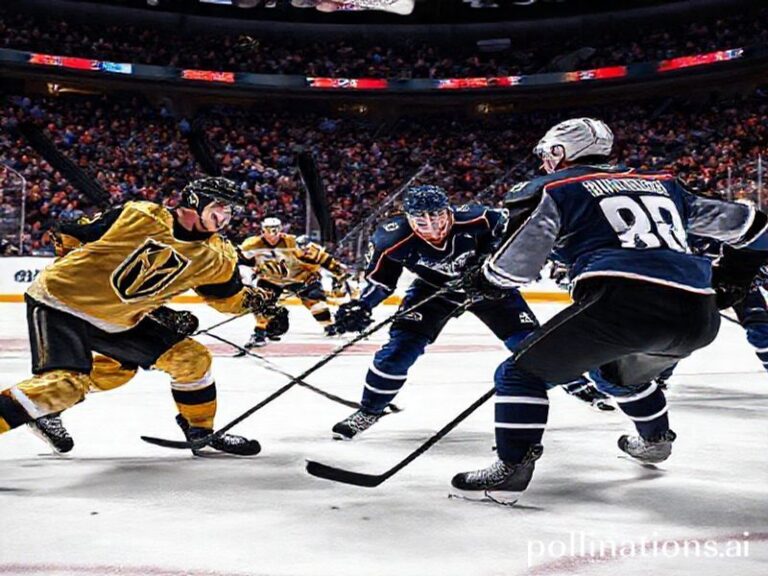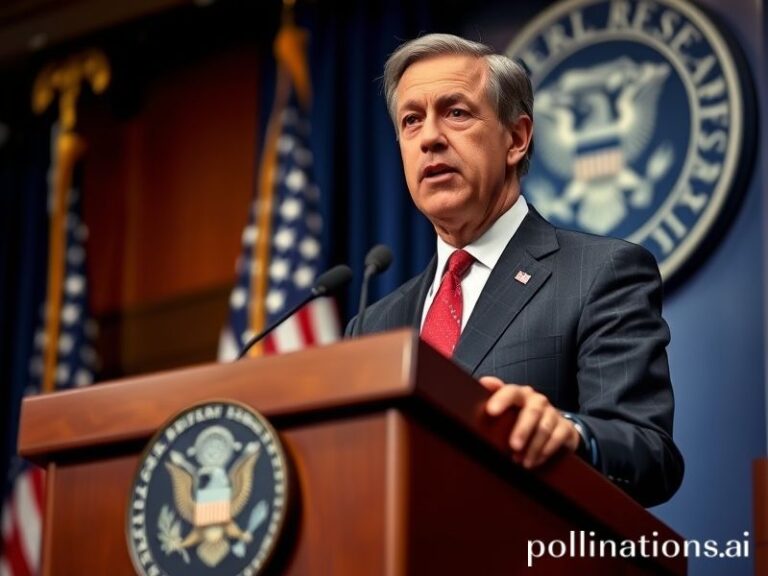Global Schadenfreude and a Billion-Dollar Daydream: The Mega Millions Jackpot as International Therapy
The Mega Millions jackpot has swollen to that cartoonish, Scrooge-McDuck-pool figure again—$1.05 billion this time, give or take a rounding error that could still buy a small Balkan republic. Somewhere in Los Angeles a single ticket is now the golden Willy Wonka wrapper for the largest U.S. lottery haul in 2024. Cue the polite international applause: European pension funds adjust their dollar hedges, Japanese day-traders yawn (they have crypto for thrills), and Nigerian WhatsApp groups forward screenshots with the caption “See God.”
From a global perch, the spectacle is less about one ecstatic Californian and more about the planet’s favorite pastime—outsourcing hope to six ping-pong balls. The odds (1 in 302.6 million) are statistically identical whether you’re buying the ticket in a Seoul convenience store or smuggling it across the Tijuana border, yet the emotional freight travels farther than any 747. It’s become the dollar-denominated Esperanto of despair: everyone understands what it means to fantasize about quitting the job, telling the landlord to perform anatomically impossible acts, and finally learning what “fiduciary” means from inside a Swiss private bank.
Scratch beneath the confetti and you find a tidy allegory for late-stage capitalism. The same week the jackpot metastasized, the World Bank revised global growth downward again, like a nervous sommelier who keeps sniffing cork. Sri Lanka is still rationing electricity, Argentina is on its ninth IMF program in twenty years, and Germany has quietly accepted that “cheap Russian gas” is now filed next to “affordable rent in Manhattan.” Against that backdrop, a billion-dollar mirage is the only stimulus package with bipartisan, intercontinental appeal. Who needs G7 communiqués when you’ve got Powerball?
Naturally, every region tailors the dream to local taste. In China, where gambling is officially naughty, state media frames the story as cautionary—“Look how unequal America is”—while Taobao vendors discreetly sell proxy betting services via VPN. Gulf News runs the numbers next to ads for $30 million penthouses in Dubai, just in case the winner prefers desert tax shelters to Malibu sunsets. Meanwhile, French intellectuals, who can make nihilism sound sexy, debate whether the jackpot is proof of American decadence or merely the logical endpoint of Enlightenment individualism. The answer, bien sûr, is both.
There is, of course, the inevitable post-win fallout to anticipate. Past titans of luck have discovered that relatives materialize faster than Russian dash-cam videos. Charities you’ve never heard of suddenly know your childhood nickname. And somewhere in London a team of lissome wealth managers begins rehearsing the phrase “diversified offshore structure” in an accent calibrated to soothe nouveau-riche panic. The winner’s government will shave off 37% for Uncle Sam; other nations watch with the detached curiosity of villagers observing a neighbor’s barn fire—warmth without personal risk.
Economists insist lotteries are regressive taxes on the statistically illiterate, which is a polite way of saying humanity would rather pay for fantasy than fix potholes. Still, it’s hard to hate a system that momentarily convinces a Bangladeshi rideshare driver in Queens and a retired schoolteacher in Ohio they’re reading the same horoscope. In a fractured world, shared delusion is its own kind of diplomacy.
As the confetti settles and the cameras pivot to the next spectacle—perhaps a royal divorce or another crypto exchange implosion—the jackpot leaves behind a thin layer of glitter on everything it touched. The lucky ticket holder will soon discover that money can, in fact, buy happiness; it just can’t prevent relatives from asking for loans. The rest of us will return to our regularly scheduled dystopia, comforted by the knowledge that somewhere, someone is googling “how much does a private island cost?” and briefly forgetting the price of eggs. And in that fleeting, collective hallucination, we are all, for once, in the same tax bracket: the one labeled “pre-tax hope.”

